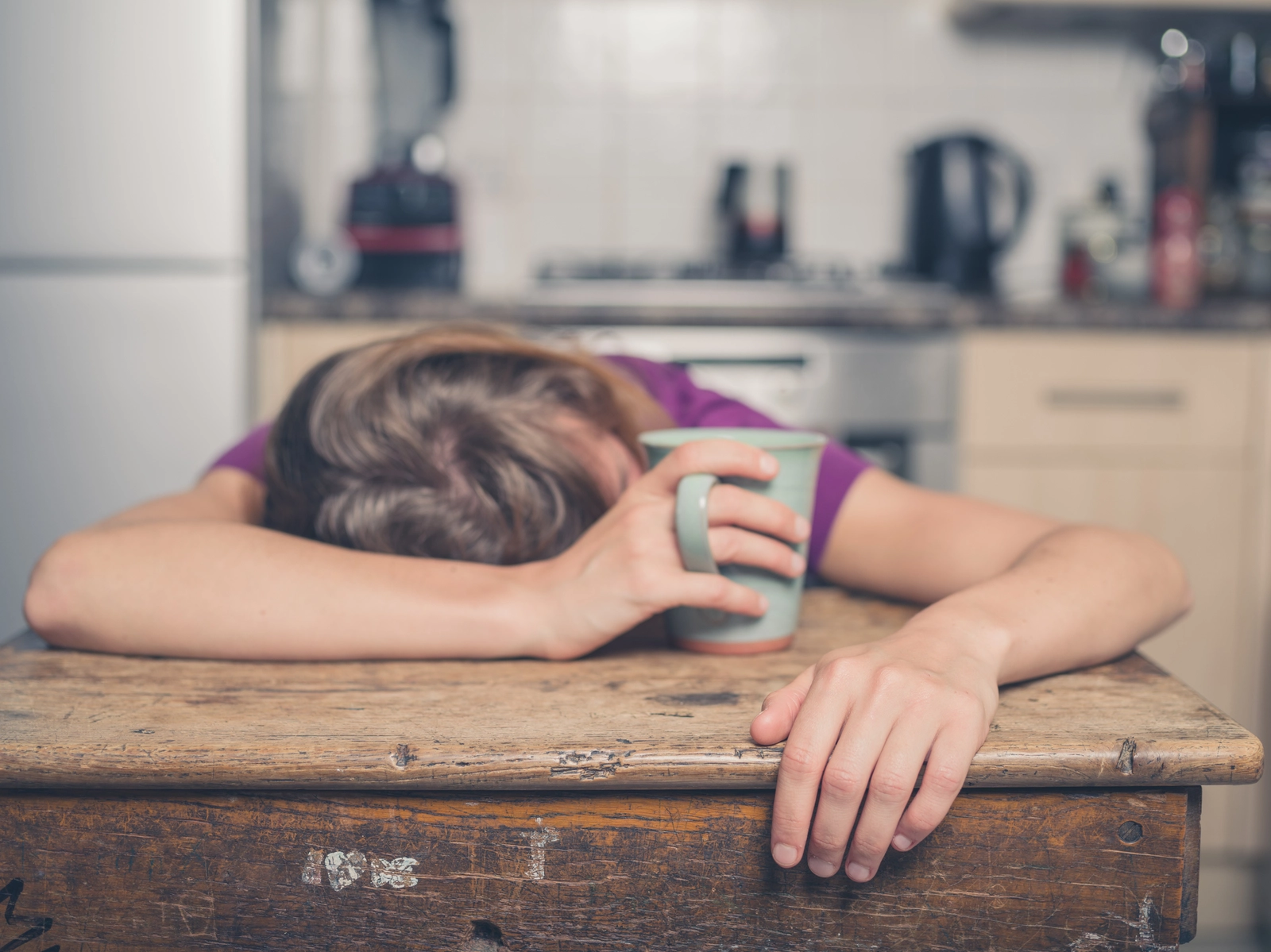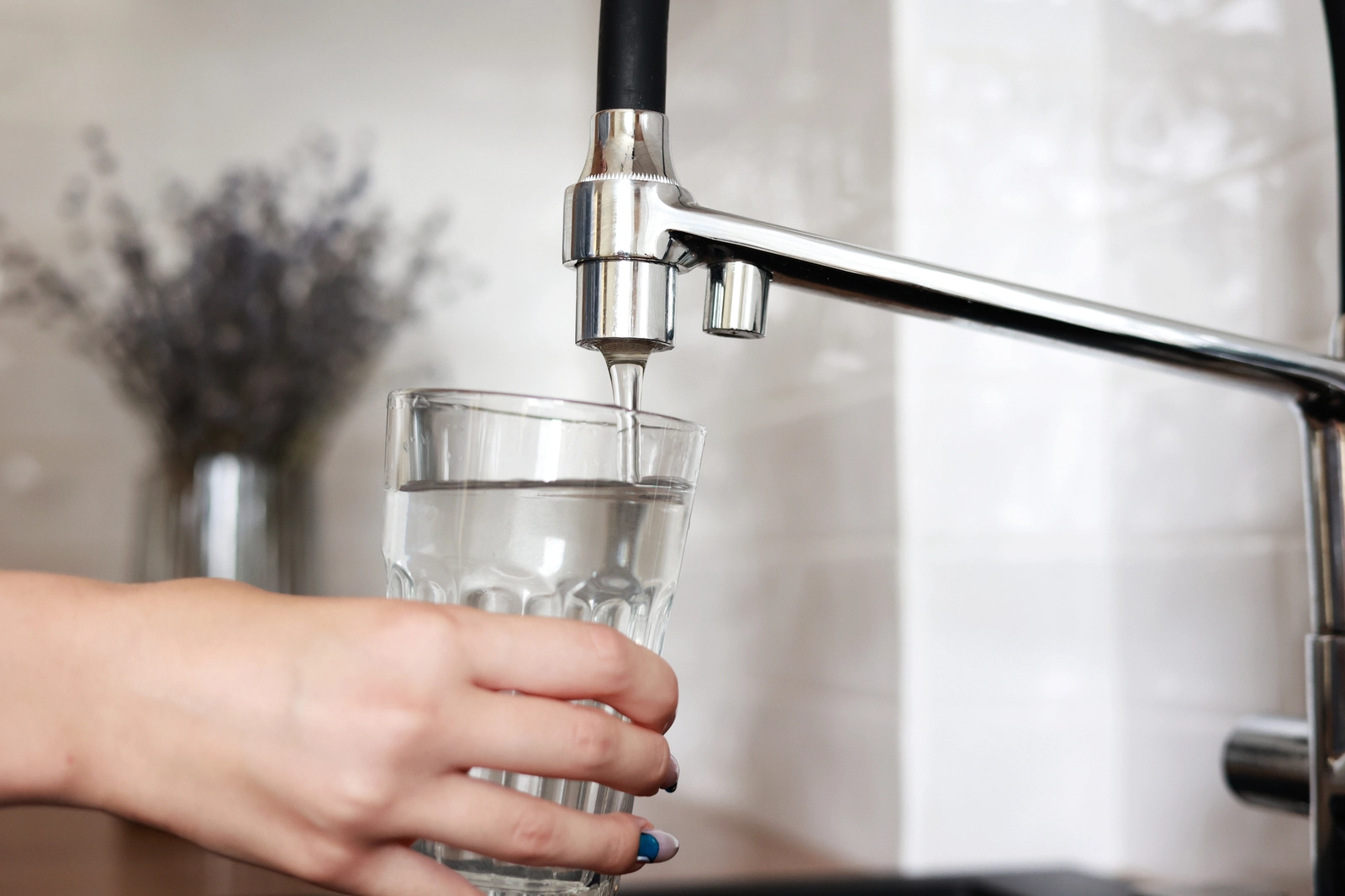Addiction | 4 min read
The Causes of Hangover Anxiety
Medically Reviewed By

On January 6, 2025
Written By
On January 6, 2025

What you will learn
- Physical hangovers often come with anxiety symptoms that include racing thoughts, dread, and heightened stress levels as alcohol leaves the system.
- The brain chemistry changes during drinking cause a rebound effect when alcohol wears off, leading to increased anxiety through disrupted neurotransmitters and stress hormones.
- External factors like sleep deprivation, social situations, and pre-existing conditions can significantly worsen hangover-related anxiety symptoms.
- Prevention and management strategies include mindful drinking habits, creating calming environments, focusing on physical recovery, and developing pre/post-drinking routines.
Waking up after drinking can bring more than just a headache and nausea – many people experience intense feelings of worry and dread. The phenomenon, also known as hangover anxiety or “hangxiety,” creates a perfect storm of physical and emotional symptoms that can make the day after drinking particularly challenging. Scientists have uncovered several key mechanisms that explain why alcohol consumption leads to this distinctive form of anxiety, ranging from changes in brain chemistry to disrupted sleep patterns.
What is Hangover Anxiety, and What Causes It?
Hangover anxiety occurs when feelings of worry, dread, and nervousness appear alongside traditional hangover symptoms.[1] The racing thoughts and heightened stress levels can feel overwhelming, making people replay events from the night before or experience generalized anxiety that seems to have no specific trigger. These psychological symptoms often pair with physical effects like rapid heartbeat, sweating, and restlessness.
The science behind hangover anxiety involves several mechanisms in the brain and body. Alcohol initially increases levels of GABA, a calming neurotransmitter that reduces anxiety.[2] However, when alcohol levels drop, the brain experiences a rebound effect, leading to heightened anxiety and restlessness. Additionally, alcohol interferes with sleep quality, causes inflammation throughout the body, and disrupts blood sugar levels – all factors that can trigger or worsen anxiety symptoms. The dehydration and electrolyte imbalances common during hangovers can also contribute to feelings of unease and distress.
Why Does Alcohol Impact Hangover Anxiety?
During alcohol consumption, the brain releases higher levels of dopamine and serotonin, creating temporary feelings of pleasure and relaxation.[3] As the body metabolizes alcohol, these neurotransmitter levels drop sharply, leading to increased anxiety and emotional vulnerability. The brain also produces excess glutamate – an excitatory neurotransmitter – as it tries to compensate for alcohol’s depressant effects, which can create feelings of restlessness and unease during the hangover period.
The physical stress of processing alcohol also plays a significant role in hangover anxiety. Alcohol triggers the release of stress hormones like cortisol and disrupts the body’s natural sleep-wake cycle.[4] These disruptions, combined with inflammation in the body and decreased blood sugar levels, create physical symptoms that can amplify feelings of anxiety. The liver works overtime to process alcohol toxins, which can lead to physiological stress that manifests as both physical discomfort and psychological distress.
Are There Other Triggers for Hangover Anxiety?
Certain lifestyle factors and personal circumstances can significantly intensify hangover anxiety. Sleep deprivation, which often accompanies drinking, amplifies emotional sensitivity and reduces the ability to regulate stress responses. Drinking on an empty stomach or mixing different types of alcohol can lead to more severe hangovers and, subsequently, worse anxiety symptoms.
Social factors play a crucial role in hangover anxiety as well. Drinking in unfamiliar environments, with new people, or in high-stress situations can contribute to increased next-day worry. Many people experience heightened anxiety when trying to piece together gaps in their memory from the previous night, particularly if they engaged in out-of-character behavior or had important conversations while drinking.
Pre-existing mental health conditions, such as generalized anxiety disorder or social anxiety, can make people more susceptible to hangover anxiety. The alcohol-induced changes in brain chemistry can temporarily worsen underlying anxiety symptoms. Additionally, certain medications that interact with alcohol might intensify both the physical hangover symptoms and psychological distress the following day.
Managing Hangover Anxiety
The most immediate way to address hangover anxiety involves focusing on physical recovery. Staying hydrated, eating nutritious foods rich in B vitamins and electrolytes, and gentle movement like walking or stretching can help stabilize blood sugar and reduce physical symptoms that worsen anxiety.[5] Taking deep breaths and practicing grounding exercises can relieve racing thoughts and panic sensations.
Creating a calm environment makes a significant difference in managing hangover anxiety. Dimming lights, minimizing noise exposure, and avoiding overstimulating activities allow the nervous system to regulate itself. Many people find relief through mindfulness practices, such as meditation or progressive muscle relaxation, which can reduce the intensity of anxious thoughts and physical tension.
Resisting the urge to analyze events repeatedly from the night before can help prevent anxiety from spiraling. Instead, focusing on self-compassion and accepting that the anxiety will pass can provide emotional relief. Connecting with trusted friends who can offer reassurance about the previous night’s events often helps ease social anxiety and embarrassment that may arise during a hangover.
Preventing Hangover Anxiety
There are several things you can do to prevent experiencing hangover anxiety (or to minimize its impact). Setting clear limits before drinking, alternating alcoholic drinks with water, and eating a substantial meal before consuming alcohol can significantly reduce both physical hangover symptoms and subsequent anxiety. Many people find success with tracking their drinks throughout the night and maintaining a slower drinking pace to prevent blood alcohol levels from spiking too quickly.
Understanding personal triggers and patterns plays a critical role in prevention, too. Taking note of which situations, types of alcohol, or drinking environments tend to worsen hangover anxiety helps in making informed choices. Planning social activities that do not center around heavy drinking, setting boundaries with friends who may encourage excessive consumption, and choosing lower-alcohol alternatives can make a substantial difference in next-day anxiety levels.
Creating a pre-drinking and post-drinking routine helps minimize anxiety risks as well. Ensuring proper hydration and nutrition in the hours leading up to drinking, planning safe transportation home, and setting aside recovery time the next day can reduce stress. Some people benefit from taking B-complex vitamins or electrolyte supplements before drinking, though it’s essential to consult with healthcare providers about supplement use.
How Do I Know If I’m Drinking Too Much?
Understanding your relationship with alcohol starts with noticing patterns rather than focusing on strict numbers. Signs that drinking might be impacting your life include regularly experiencing intense hangover anxiety, experiencing withdrawal symptoms when not drinking, finding it difficult to stick to drinking limits you set for yourself, or noticing that alcohol affects your work, relationships, or daily responsibilities.[6] Changes in sleep patterns, increasing tolerance, or drinking to manage stress or anxiety can also signal an opportunity to reassess your relationship with alcohol.
Remember that seeking guidance about drinking habits shows self-awareness and strength – many people find success in making positive changes through open conversations with healthcare providers, counselors, or trusted friends who can offer support and practical strategies for developing a healthier relationship with alcohol.
Frequently Asked Questions About Hangover Anxiety
Hangover anxiety usually peaks during the first few hours after waking and typically subsides within 24 hours as your body processes the remaining alcohol. However, for some people, the anxiety symptoms can last up to 72 hours, especially after heavy drinking sessions. The duration often depends on factors like how much you drank, your overall health, sleep quality, and individual physiology.
Not necessarily. Experiencing anxiety after drinking is a common physiological response that can happen to anyone, even moderate drinkers. However, if you regularly experience severe hangover anxiety that interferes with your daily life, or if you continue drinking despite these symptoms, it may be worth discussing with a healthcare provider. Some people are simply more sensitive to alcohol’s effects on mood and anxiety levels.
Potentially. Darker alcoholic beverages like red wine, whiskey, and bourbon contain higher levels of congeners – byproducts of fermentation that can intensify both physical hangover symptoms and anxiety. Additionally, drinks with higher alcohol content can lead to more severe anxiety symptoms since they cause more significant changes in brain chemistry. Carbonated alcoholic beverages may also be absorbed more quickly, potentially leading to more intense symptoms.
Several factors influence why some people experience more severe hangover anxiety than others. Genetic differences affect how efficiently people metabolize alcohol and regulate neurotransmitters. Those with naturally lower levels of GABA or serotonin might be more susceptible.
Personal history of anxiety, family history of alcohol sensitivity, and overall stress levels play important roles. Some people have variations in liver enzymes that process alcohol differently, leading to more intense symptoms. Additionally, medications, hormonal factors, and general health status can all influence how strongly someone reacts to alcohol’s anxiety-producing effects.
Ascendant New York Editorial Guidelines
Here at Ascendant New York, we understand the importance of having access to accurate medical information you can trust, especially when you or a loved one is suffering from addiction. Find out more on our policy.
[1] What is hangxiety? – Alcohol and Drug Foundation. (n.d.). Adf.org.au. https://adf.org.au/insights/what-is-hangxiety/ on December 13, 2024
[2] Davies, M. (2003). The role of GABAA receptors in mediating the effects of alcohol in the central nervous system. Journal of Psychiatry and Neuroscience, 28(4), 263. https://pmc.ncbi.nlm.nih.gov/articles/PMC165791/ on December 13, 2024
[3] Valenzuela, C. F. (2024). Alcohol and Neurotransmitter Interactions. Alcohol Health and Research World, 21(2), 144. https://pmc.ncbi.nlm.nih.gov/articles/PMC6826822/ on December 13, 2024
[4] Spencer, R. L., & Hutchison, K. E. (2024). Alcohol, Aging, and the Stress Response. Alcohol Research & Health, 23(4), 272. https://pmc.ncbi.nlm.nih.gov/articles/PMC6760387/ on December 13, 2024
[5] Sawchuck, C. (2017). Find out how food and anxiety are linked. Mayo Clinic. https://www.mayoclinic.org/diseases-conditions/generalized-anxiety-disorder/expert-answers/coping-with-anxiety/faq-20057987 on December 13, 2024
[6] National Institute on Alcohol Abuse and Alcoholism. (2020). Understanding Alcohol Use Disorder. National Institute on Alcohol Abuse and Alcoholism. https://www.niaaa.nih.gov/publications/brochures-and-fact-sheets/understanding-alcohol-use-disorder on December 13, 2024




